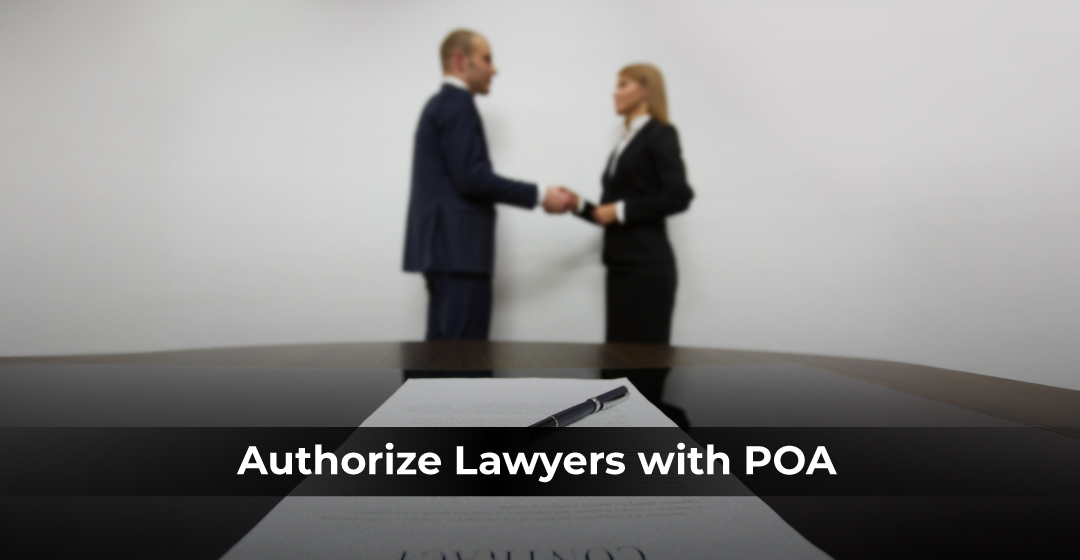When legal proceedings in the UAE demand your attention, but you cannot be physically present, a Power of Attorney (POA) becomes your strongest tool. With a properly drafted and notarized POA in the UAE, you can authorize a lawyer or legal representative to act on your behalf in UAE courts, saving you time, effort, and unnecessary stress.
This guide explains everything you need to know about registering a POA for court use in the UAE, from drafting to notarization, attestation, and submission.
What Does a Court-Use POA Allow?
A POA for court matters gives your chosen lawyer the legal right to:
- File or defend lawsuits on your behalf
- Appear in hearings and submit documents
- Sign pleadings, admissions, and settlements
- Collect judgments and handle enforcement procedures
Step-by-Step Guide to Authorizing a Lawyer
Step 1. Define the Scope of Authority
Be specific about what powers you want to grant. For litigation, a Special POA is usually best. It outlines powers such as filing cases, presenting evidence, attending hearings, and signing documents. A general POA, by contrast, may be too broad and unnecessary for court purposes.
Step 2. Draft the POA Properly
The wording of your POA matters. Vague statements like “handle my legal matters” are often rejected by courts. Instead, ensure the POA includes clear litigation language. Using a lawyer or a trusted POA service helps avoid costly mistakes.
Step 3. Notarize the POA in the UAE
Once drafted, the POA must be signed before a Notary Public. Most emirates now offer e-Notary services, such as Dubai Courts e-Notary, making the process faster and more convenient. This notarization is what makes the POA legally valid for court use.
Step 4. Get Certified Arabic Translation
Since court proceedings in the UAE are conducted in Arabic, your POA must be translated if it’s in another language. Use a certified legal translator approved by the UAE Ministry of Justice to ensure acceptance.
Step 5. Complete Attestations if Signed Abroad
If you are outside the UAE, the process requires a few extra steps:
1. Sign and notarize the POA in your home country.
2. Have it legalized by your Ministry of Foreign Affairs and the UAE Embassy.
3. On arrival in the UAE, get it attested by the Ministry of Foreign Affairs & Ministry of Justice.
Step 6. Submit the POA to the Court
Your lawyer will then present the original notarized and attested POA, along with the Arabic translation, to the court. At this stage, the court officially recognizes them as your authorized legal representative.
Common Mistakes to Avoid
Many POAs get delayed or rejected because of small but critical errors. Here’s what to watch out for:
- Unclear wording: Courts require specific authority to be listed.
- Skipping notarization or attestation: Without this, the POA holds no legal value.
- No Arabic translation: English-only POAs are not accepted in most courts.
- Expired POAs: Check validity dates to avoid interruptions in your case.
- Granting unnecessary powers: Stick to a Special POA for court to avoid risks.
How We Help You Get a Court-Ready POA
Getting a Power of Attorney right the first time saves you from costly delays in court. The key is precision, your POA must use the correct legal language, follow the proper attestation chain if signed abroad, and be available in both original and certified Arabic versions. Even small oversights, like missing a translation or unclear wording, can cause the court to reject the document. That’s why many individuals prefer relying on professional POA drafting services.
At MakeMyPOA, we not only prepare litigation-ready POAs with the right legal phrasing but also guide you step by step through notarization and attestations, ensuring your lawyer is empowered to represent you without complications.







